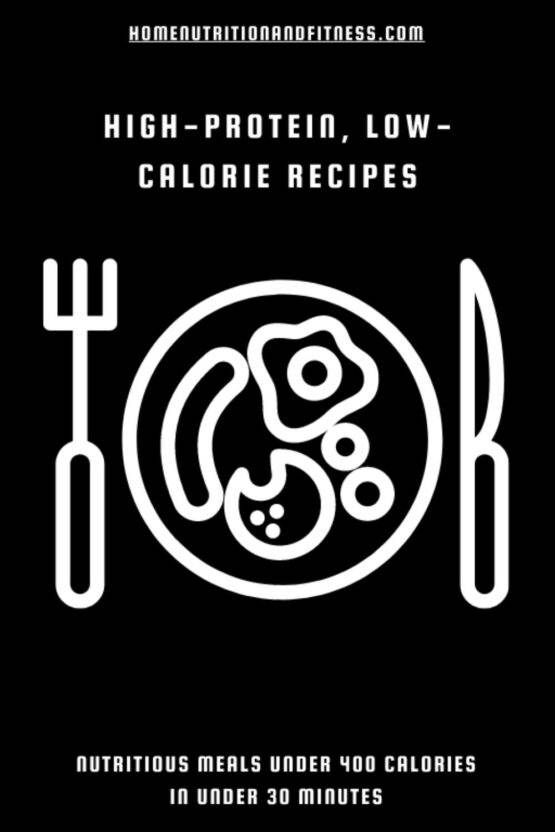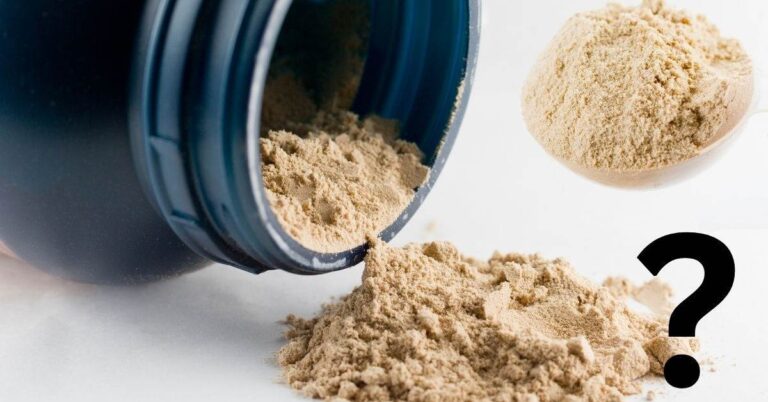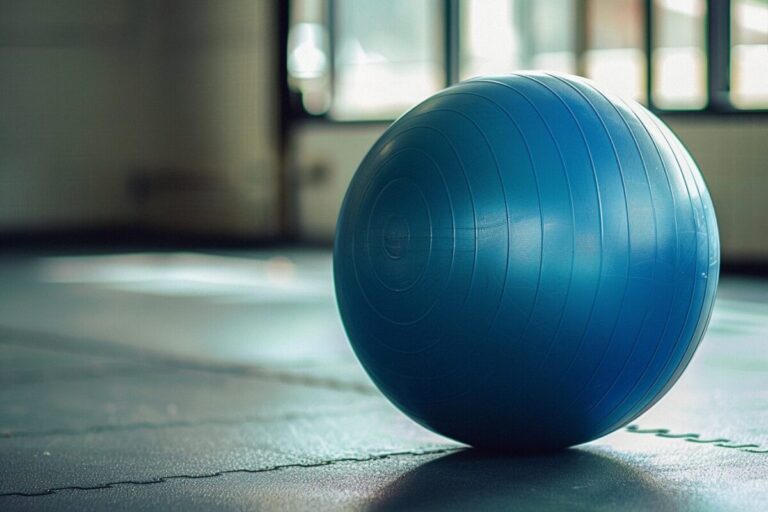Creatine is one of the most popular sports supplements on the market. Walk into any gym or health food store, and you’re likely to see tubs of creatine powder sitting on the shelves. Open up the supplement cabinet of a bodybuilder or athlete, and chances are you’ll find creatine tucked away inside.
But is creatine actually natural? Or is it more akin to steroids or other performance-enhancing drugs?
These are common questions for those new to the world of fitness supplements. With so many products out there claiming to boost your gains, it can be hard to tell what’s natural and what’s not.
Let’s clear up the confusion surrounding creatine and explain why it’s considered a natural supplement.
Creatine occurs naturally in the body and in foods like meat and fish. Supplemental creatine safely boosts those natural stores, providing modest improvements in exercise recovery and performance. Unlike steroids, creatine is legal, mild in effects, and carries little health risk. It is not a drug, banned substance, or unnatural chemical. Extensive research confirms creatine is allowed and widely used even by drug-tested athletes.
Affiliate Disclosure: Please note that some of the links on this page may be affiliate links. This means that if you click on these links and make a purchase, we may earn a small commission, at no additional cost to you. We only recommend products and services that we believe in and use ourselves. Your support through these links helps us keep the content coming. Thank you for your support!
Is Creatine Natural?
First things first – what exactly is creatine? Creatine is a molecule produced naturally in our bodies that helps supply energy to our cells, particularly muscle cells. The body makes creatine and stores it in the muscles so that they have quick access to this essential energy source.
We also get creatine from eating animal products like meat, eggs, and fish, which all contain some level of creatine. That’s why vegetarians often have lower creatine stores than those who eat meat.
Creatine supplements help to “top up” our body’s stores of this critical compound. Most creatine supplements come in powder form and are flavourless, making them easy to mix into shakes or water.
When taken as directed, supplemental creatine can help increase your natural creatine stores by up to 40%. This can translate into better workout performance and reduced fatigue.
So in summary – yes, creatine is about as natural as supplements come. It’s not some synthetic compound cooked up in a lab. Creatine is already present in the body and in the foods we eat. Taking a creatine supplement just gives your levels an extra boost.
Creatine vs Anabolic Steroids: There’s a Difference…
However, some people mistakenly lump creatine in with steroids or other illegal performance enhancers. But the differences between creatine and anabolic steroids are massive:
Effects
Creatine provides a relatively mild boost in energy production, strength, and muscle growth compared to steroids. Creatine helps your muscles recover faster and potentially train harder.
Steroids dramatically enhance protein synthesis and can boost muscle growth and strength to extreme levels.
Legality
Creatine is perfectly legal and available over-the-counter, on the internet and in your supermarket without any prescription.
Steroids are scheduled controlled substances and are illegal without a prescription. Possessing steroids can result in stiff fines or jail time if caught.
Safety
When taken properly, creatine’s side effects are minor if present at all. Some people report mild water weight gain
Steroids come with a long list of potentially dangerous side effects including liver damage, hormone imbalances, high blood pressure, and cardiovascular complications.
As you can see, creatine provides safe, natural benefits without the legal and health risks of steroids.
5 Signs That Someone Is On Steroids
Why Is Creatine NOT a Drug
Some people may call creatine a “drug” just because it’s in supplement form. But creatine clearly does not fit the definition of a drug. For a substance to be classified as a drug, it must either chemically alter the structure or function of the body, or alter the mood, perception, behaviour or cognition.
Creatine does none of those things. It’s not psychoactive or addictive. It simply provides cells with more energy to perform better. Coffee, protein powder, vitamins and countless other supplements help optimize the body’s normal function without being drugs.
Additionally, creatine is not even regulated by the FDA as a drug. It’s sold legally as a dietary supplement. The only thing “drug-like” about creatine supplements is that the powder goes into your body – but by that definition, whey protein would be a drug too!
Is Creatine a Banned Substance?
If creatine is so natural and safe, does that mean it’s allowed in competitive sports? For the most part, yes. Creatine is not banned by any major athletic commission or professional sports league.
It would be very difficult to enforce a ban on creatine when it is naturally produced in the body and present in food too.
Today, creatine is widely used by athletes across college, amateur, and pro sports. Extensive testing has shown creatine provides only a modest performance enhancement in high-intensity exercise. It does not dramatically boost results or provide an unfair advantage compared to training naturally.
Bottom line – creatine is considered fair game by essentially every major sporting organization.
Creatine Use for Natural Bodybuilders
Within the world of bodybuilding, there’s a division between “naturals” – those who train drug-free without steroids – and enhanced bodybuilders who use steroids/hormones. So where does creatine fit in?
Since creatine is not hormonal or synthetic, it’s considered fair game for natural bodybuilding. Creatine provides a safe way for naturals to potentially enhance strength gains and workout recovery.
However, opinions differ on those in-between supplements like SARMS (Selective Androgen Receptor Modulators). But creatine sits firmly on the “natural” side of the spectrum according to most natural bodybuilding organizations.
Selective androgen receptor modulators, commonly known as SARMs, are a class of therapeutic compounds that have similar properties to anabolic steroids, but with reduced androgenic (masculinising) effects. They are intended to provide the benefits of anabolic steroids – increased muscle mass and strength – without the unwanted side effects. However, research on long-term safety is still limited.
Natural competitors are regularly drug tested too. So if creatine wasn’t allowed, they wouldn’t risk their reputation and eligibility using it. The fact that creatine is so commonly used in tested natural bodybuilding shows it’s accepted as a natural supplement.
Why Is Creatine Considered Natural?
By now, you may already be convinced that creatine deserves its natural reputation. Let’s summarise just why creatine is regarded as a natural substance:
- It’s produced naturally in the body – Our bodies make creatine to supply energy, particularly to muscle and brain cells.
- It’s found naturally in foods – Creatine comes naturally from eating animal foods like beef, eggs, and fish.
- It’s not chemically altered or synthesized – Creatine supplements contain the same exact creatine molecule that’s already in your body. It’s not chemically modified.
- No prescription is needed – You can buy it over-the-counter, unlike scheduled controlled substances.
- It’s not psychoactive or addictive – Creatine doesn’t get you “high” or alter cognition or mood.
- It’s widely used by drug-tested athletes – Creatine is allowed in sports, showing it’s not considered performance-enhancing.
- It provides relatively mild benefits – The boost in exercise performance from creatine is minor compared to drugs.
As you can see, by every measure creatine qualifies as a natural supplement. It shares more in common with protein powders or vitamins than steroids.
Creatine and Hair Loss – An Unwanted Side Effect?
A rumoured side effect of creatine use is that it accelerates hair loss or baldness. Is there any truth to these claims?
Currently, there is no compelling evidence that creatine causes hair loss. No large controlled studies have observed increased hair loss or balding in users. Much of the concern stems from anecdotal stories posted online.
Some speculate that creatine’s mild dehydrating effects could exacerbate hair loss for those who are already balding. Dehydration can place stress on the body. However, proper hydration is all that’s needed to counteract this. Drinking sufficient water prevents dehydration issues from creatine use.
As far as the science shows, creatine is safe for your hair. But as always, pay attention to your body. Discontinue use if you notice accelerated shedding. For optimal hair health, make sure you stay well-hydrated and get enough nutrients.
Is Creatine the Right Supplement for Me?
If you exercise regularly, creatine is safe and possibly helpful. Those who tend to benefit the most include:
- Weight lifters or bodybuilders
- Sprint and power athletes
- Team sport athletes like football players
- Those wanting to gain muscle or strength
- People looking to enhance workout recovery
Creatine is fine for most adults when used appropriately. Teens under 18 should read this article for more information.
To get started, stick to the standard dosage of 3-5 grams per day. As with all supplements, it’s advised to consult your doctor before starting.
Proper hydration is important when using creatine to reduce chances of dehydration, cramping or other side effects. If you experience any negative symptoms, decrease your dosage or discontinue use.
Conclusion: Is Creatine Natural or “Juice”?
Creatine is clearly a natural supplement. It provides users with a legal and mild athletic boost comparable to protein or caffeine. But unlike banned substances, creatine comes with minimal health risks.
While creatine alone won’t transform your physique, it can provide an effective way to enhance your exercise performance naturally. Just be sure to hydrate, pay attention to your body’s signals, and consult your doctor before starting.
At the end of the day, creatine simply gives your muscles more of the same natural fuel already present in your body. And there’s nothing unnatural about that.
So next time someone asks if your muscle gains are natural or from “juice”, you can proudly let them know that creatine is 100% natural!







